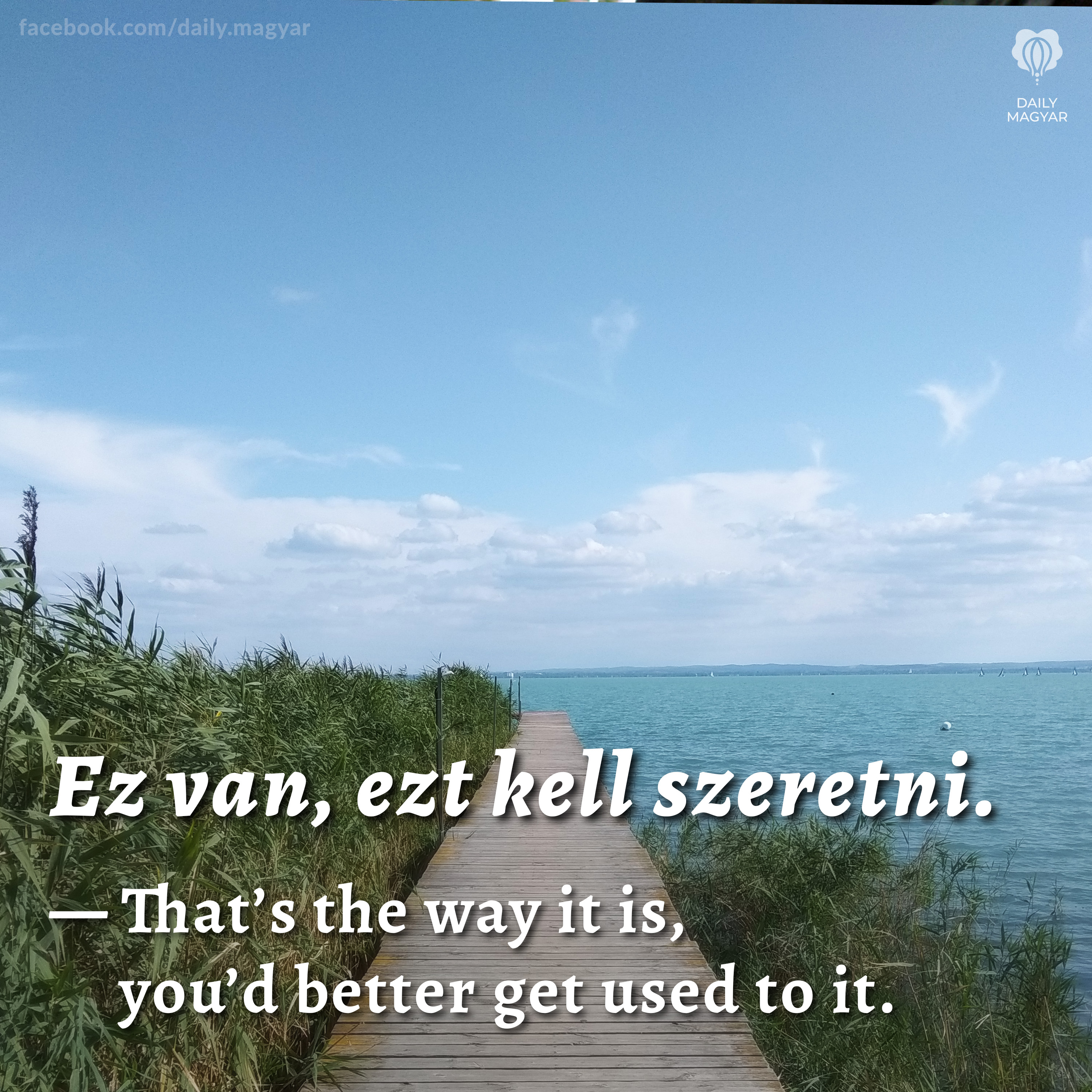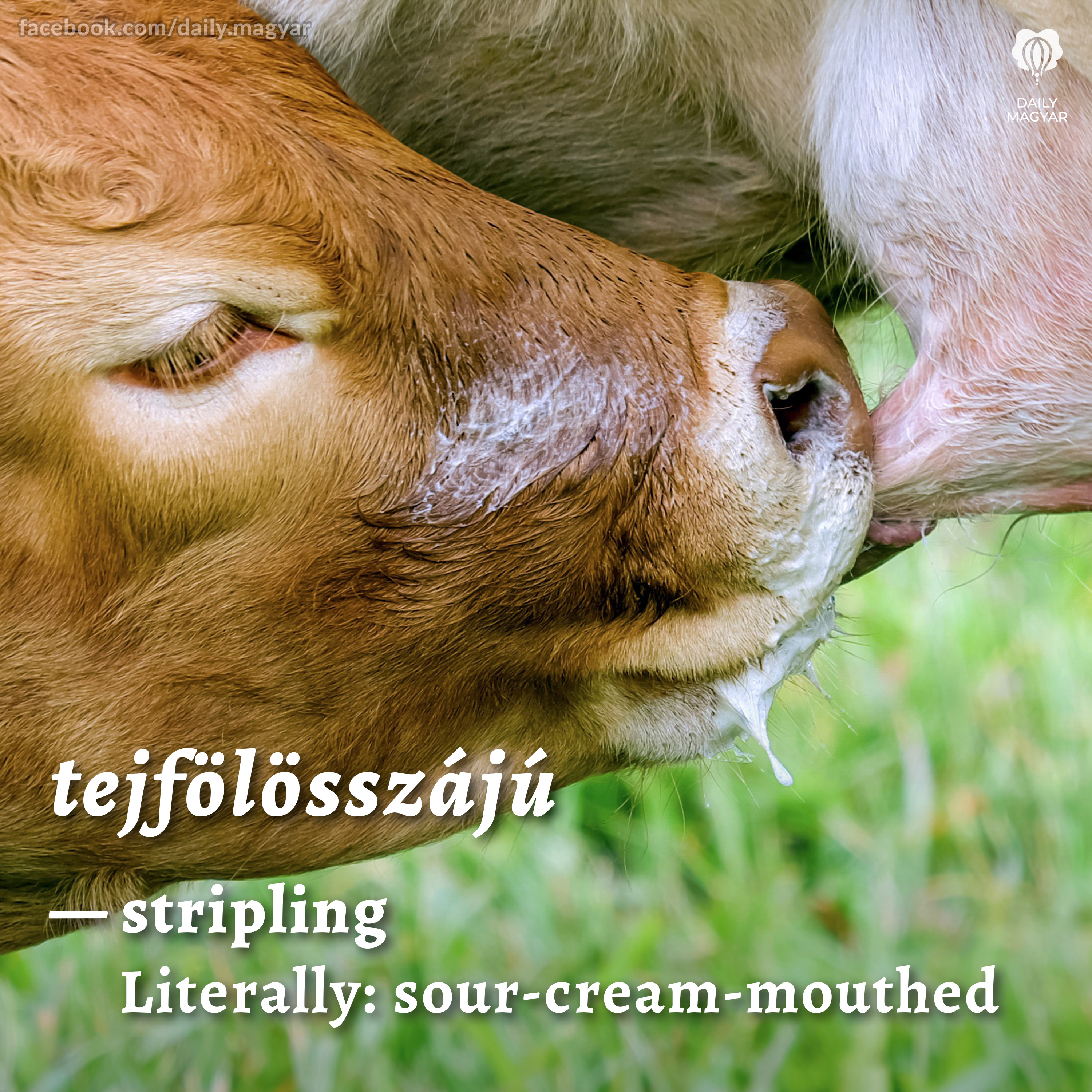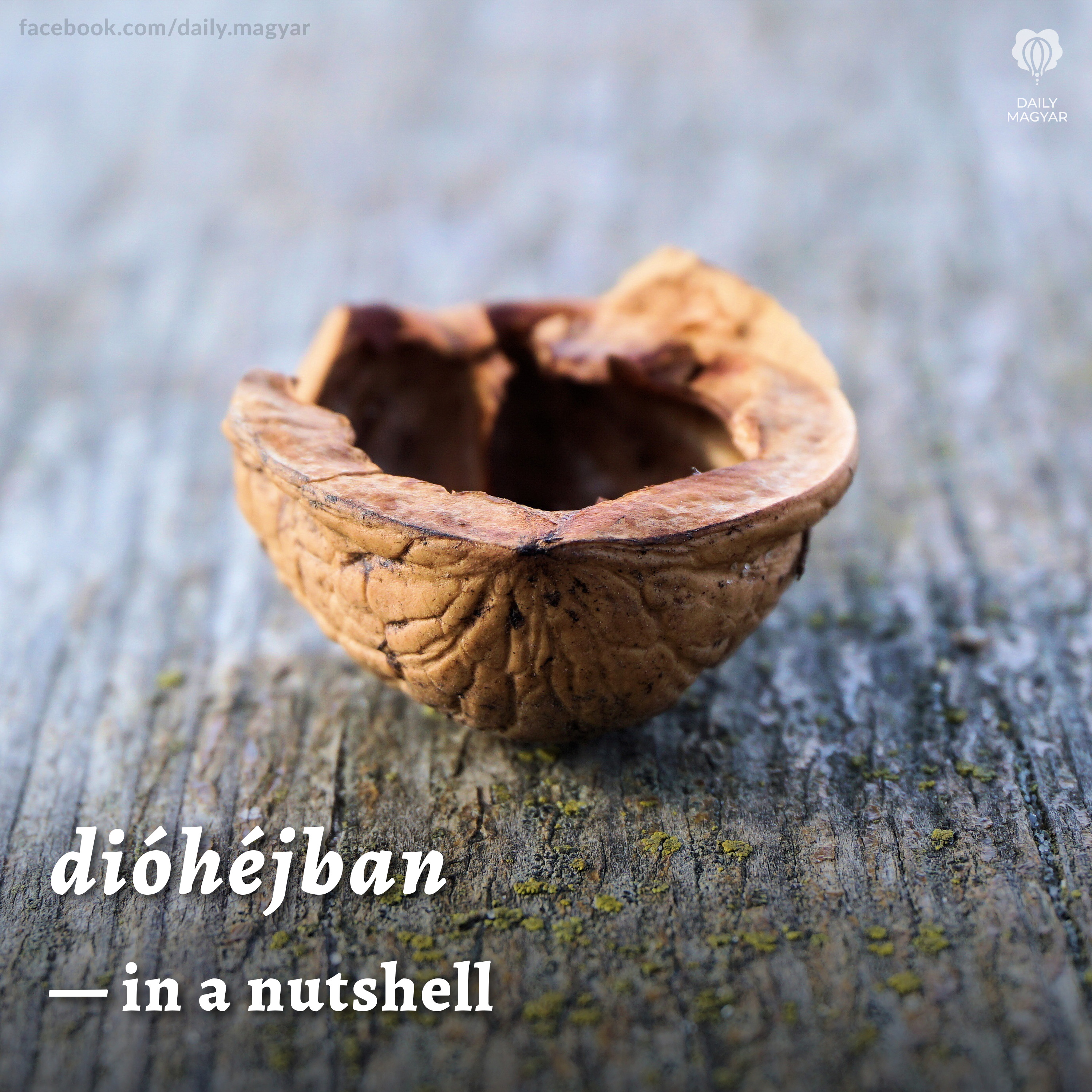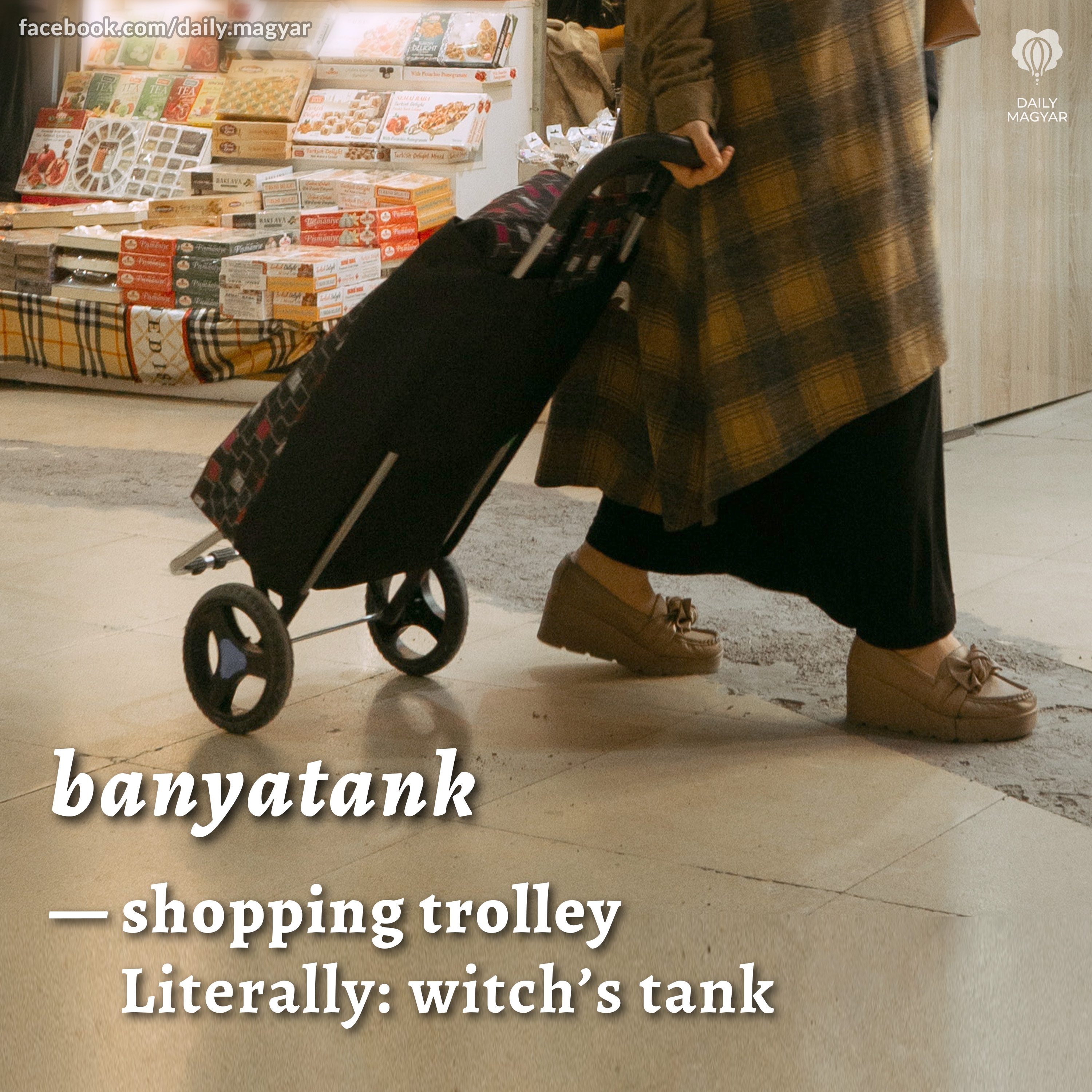
rügyezik [ˈryɟɛzik] – it’s burgeoning
rügyező [ˈryɟɛzøː] – burgeoning
rügy [ˈryɟ] – bud; burgeon; sprout
rügyezni [ˈryɟɛzni] – to be in bud; to burgeon
vakond

vakond [ˈvɑkond] – mole
(Literally: the little blind (one))
The word vakond (and its archaic form vakondok) comes from the Hungarian word vak – blind. Because the animal was thought to be completely blind. Vakondok could be translated into modern Hungarian as vakocska – the little blind (one).
vak [ˈvɑk] – blind
vakondok [ˈvɑkondok] – moles (plural)
vakondok [ˈvɑkondok] – mole (archaic)
vakondokok [ˈvɑkondokok] – moles (archaic, plural)
vakondtúrás [ˈvɑkondtuːraːʃ] – mole-hill
(Literally: mole-digging)
túrás [ˈtuːraːʃ] – digging
túrni [ˈtuːrni]
1) to dig (to move earth out of the way, especially downward to make a hole)
2) to root about (to turn up or dig with the snout)
3) to rummage
Photo: Tabble (Pixabay)
Jóbarátok

Jóbarátok [ˈjoːbɑraːtok] – Friends (TV Show)
(Literally: good-friends)
jó barátok [ˈjoː bɑraːtok] – good friends
jó [ˈjoː] – good
barátok [ˈbɑraːtok] – friends
barát [ˈbɑraːt]
1) friend
2) boyfriend (a barátom [ˈɑ bɑraːtom] – my boyfriend)
3) monk; friar
barátnő [ˈbɑraːtnøː]
1) girl friend
2) girlfriend (a barátnőm [ˈɑ bɑraːtnøːm] – my girlfriend)
barátság [ˈbɑraːtʃaːg] – friendship
francia hajó [ˈfrɑnciɑ hɑjoː] – French ship
papol

papol [ˈpɑpol] – he/she is constantly talking about something again and again / giving a lecture / lecturing / preaching / repeating the same again and again
(Literally: he/she is priesting)
pap [ˈpɑp] – priest
papnő [ˈpɑpnøː] – priestess
nő [ˈnøː]
1) woman
2) he/she/it is growing; it grows
Photo: Sarah Noltner (unsplash.com)
Ez van

Ez van, ezt kell szeretni. [ˈɛz vɑn ɛzt kɛlː sɛrɛtni] – That’s the way it is, you’d better get used to it. You can’t change this situation.
(Literally: This is what it is (what exists), this is what you must like.)
It’s a phrase similar to “C’est la vie.” (Ilyen az élet. [ˈijɛn ɑz eːlɛt]), but it’s not applicable as a general truth in life, only to a certain situation / experience, which mostly is not what you had wanted it to be. So you must get used to how it turned out. 🙂
ez [ˈɛz] – this
az [ˈɑz] – that
van [ˈvɑn] – there is; exists
ezt [ˈɛzt] / [ˈɛst] – this (accusative); this one
azt [ˈɑzt] / [ˈɑst] – that (accusative); that one
kell [ˈkɛlː]
1) must; need to; have to
2) to be needed
szeretni [ˈsɛrɛtni] – to love; to like
szeret [ˈsɛrɛt] – he/she loves; he/she likes
szeretlek [ˈsɛrɛtlɛk] – I love you
kedvellek [ˈkɛdvɛlːɛk] – I like you
kedvel [ˈkɛdvɛl] – he/she likes; he/she enjoys
kedvelni [ˈkɛdvɛlni] – to like; to enjoy
Photo: linkingabo
tejfölösszájú

tejfölösszájú [ˈtɛjføløʃsaːjuː] – stripling; young and inexperienced boy
(Literally: sour-cream-mouthed)
tejfelesszájú [ˈtɛjfeleʃsaːjuː] – stripling (dialectical)
(Literally: sour-cream-mouthed)
tejföl [ˈtɛjføl] – sour cream
(Literally: milk-up; milk-surface)
tejfel [ˈtɛjfel] – sour cream (dialectical)
(Literally: milk-up; milk-surface)
tej [ˈtɛj] – milk
föl [ˈføl] – up
fel [ˈfel] – up
felszín [ˈfelsiːn] – surface
Well, sour cream (tejfel) is milk fat, that can be found on the surface (felszín) of curd or sour milk (tej).
Photo: 1195798 (pixabay.com)
dióhéjban

dióhéjban [ˈdioːheːjbɑn] – in a nutshell; briefly; in short
(Literally: in a walnut shell)
dió [ˈdioː] – walnut; nut
héj [ˈheːj]
1) shell (egg, nut)
2) skin (apple, onion, potato)
3) peel (orange, lemon)
4) rind (melon)
5) crust (bread)
6) bark (tree)
7) lid (eye)
-ban [ˈbɑn] / -ben [ˈbɛn] – in
Photo: Andreas Lischka (pixabay.com)
tengeralattjáró

tengeralattjáró [ˈtɛngɛrɑlɑtːjaːroː] – submarine
(Literally: under-sea-walker)
tenger [ˈtɛngɛr] – sea
alatt [ˈɑlɑtː] – under; below; underneath
járó [ˈjaːroː] – walker; goer
járni [ˈjaːrni] – to walk; to go to
jár [ˈjaːr] – he/she goes/walks
járat [ˈjaːrɑt]
1) flight; line (e.g. of public transportation)
2) passage (underground cavity)
jármű [ˈjaːrmyː] – vehicle
járgány [ˈjaːrgaːɲ]
1) vehicle; car
2) capstan
Photo: tasukaran (pixabay.com)
Ég veled!

Ég veled! [ˈeːg vɛlɛd] – Godspeed!; Goodbye!
(Literally: May the sky be with you!)
Isten veled! [ˈiʃtɛn vɛlɛd] – Godspeed!; Goodbye!
(Literally: May God be with you!)
Isten véled! [ˈiʃtɛn veːled] – Godspeed!; Goodbye! (dialectical)
(Literally: May God be with you!)
ég [ˈeːɡ]
1) sky
2) it is burning
Isten [ˈiʃtɛn] – God
isten [ˈiʃtɛn] – god
(valami) istene [ˈiʃtɛn] – god of (something)
istenek [ˈiʃtɛnɛk] – gods
Photo: Jeremy Perkins (unsplash.com)
banyatank

banyatank [ˈbɑɲɑtɑnk] – shopping trolley (slang)
(Literally: witch’s tank)
Old ladies sometimes act as witches… rushing through the streets with their tank in their hands… nobody should stand in their way, not even by mistake… 😀
banya [ˈbɑɲɑ] – hag; harridan; witch
tank [ˈtɑnk] – tank
boszorka [ˈbosorkɑ] – witch
boszorkány [ˈbosorkaːɲ] – witch
bevásárlókocsi [ˈbɛvaːʃaːrloːkotʃi] – shopping trolley; shopping cart
bevásárló [ˈbɛvaːʃaːrloː] – shopper; buyer; purchaser
bevásárolni [ˈbɛvaːʃaːrolni] – to do one’s shopping
bevásárol [ˈbɛvaːʃaːrol] – he/she is doing shopping
bevásárlás [ˈbɛvaːʃaːrlaːʃ] – shopping
kocsi [ˈkotʃi] 1) cart; coach 2) car; auto (nowadays)
Photo: Meruyert Gonullu (pexels.com)